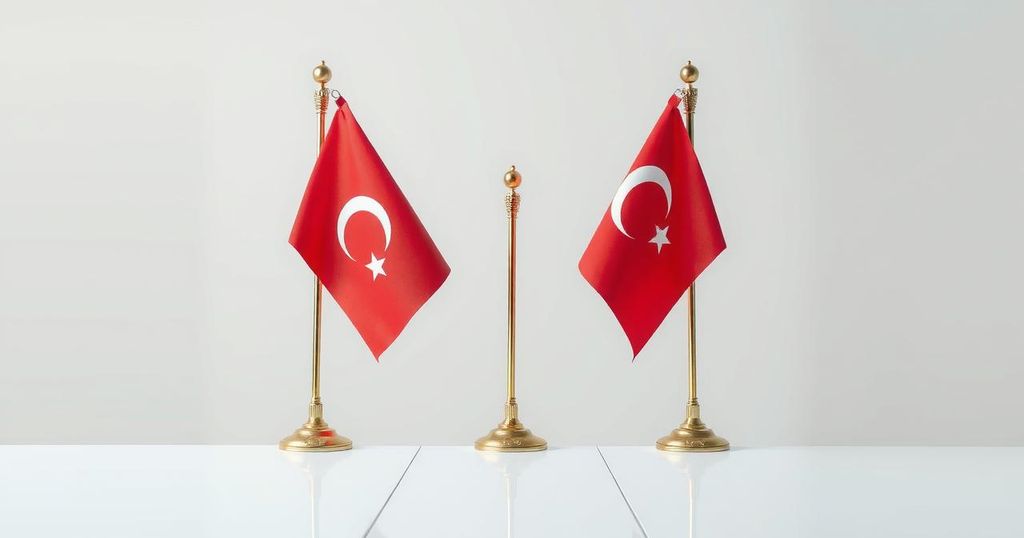Global news
ASIA, DIPLOMACY, DIRIYAH PALACE, DONALD TRUMP, EUROPE, EUROPE/ASIA, EVELYN HOCKSTEIN, FAISAL BIN FARHAN AL SAUD, FLA, INTERNATIONAL RELATIONS, MAR - A - LAGO, MARCO RUB, MARCO RUBIO, MIKE WALTZ, MO, MOSAAD BIN MOHAMMAD AL - AIBAN, MOSCOW, NORTH AMERICA, PALM BEACH, POOL PHOTO, PRINCE, RIYADH, RUBIO, RUSSIA, RUSSIAN INVASION OF UKRAINE, SAUDI ARABIA, SERGEI LA, SERGEI LAVROV, SERGEY LAVROV, STEVE WITKOFF, TRUMP, U. S, U. S. MIDDLE EAST, U. S. SECRETARY, UKRAINE, UNITED STATES, US, VLADIMIR PUTIN, WAR, WASHINGTON, YURI USHAKOV
Jamal Walker
0 Comments
U.S. and Russia Initiate Talks to Resolve Ukraine Conflict Amid Tensions
The U.S. and Russia have begun discussions to resolve the Ukraine war and improve bilateral ties, marked by a recent meeting in Riyadh. President Trump suggested Ukraine is to blame for the conflict’s continuation, leading to concerns from allies about their exclusion from negotiations. Working groups will be formed to explore avenues for peace, while U.S. officials emphasize inclusive future discussions.
In a significant shift in American foreign policy, the U.S. and Russia have initiated discussions aimed at resolving the ongoing war in Ukraine and enhancing diplomatic and economic relations. Recent talks between U.S. Secretary of State Marco Rubio and Russian Foreign Minister Sergey Lavrov in Riyadh resulted in an agreement to reopen consulates in both nations. However, Ukraine and its allies express concerns over their exclusion from future negotiations.
During an extensive four-hour meeting, President Donald Trump remarked that Ukraine bears responsibility for not preventing the conflict by failing to make concessions to Russia before hostilities began. Trump expressed frustration over Ukraine’s absence from the discussions, implying that their leadership should have acted sooner. These comments could undermine U.S. relationships with Ukraine and its European allies, which had previously focused on isolating Russia under President Biden.
The talks led to discussions of restoring staff levels at U.S. and Russian embassies, severely diminished due to escalating diplomatic tensions since Russia’s annexation of Crimea in 2014. Both parties referenced the need for improved operations of diplomatic missions as essential for facilitating Ukraine peace negotiations and exploring potential joint economic projects.
Both the U.S. and Russia have agreed to form working groups to explore negotiations on ending the conflict in Ukraine, with discussions anticipated to commence shortly. Critical issues such as territorial disputes and security guarantees will be addressed, highlighting the significance of establishing normal diplomatic relations if a peace agreement is to be realized.
Neither Ukraine nor European nations were part of the Riyadh discussions, yet U.S. officials clarified that there will be consultations moving forward. Both Secretary Rubio and National Security Advisor Mike Waltz emphasized the importance of engaging all parties in future negotiations, asserting that the Russian side’s involvement is crucial to the success of the initiative. However, the exclusion provoked frustration from Ukrainian President Volodymyr Zelenskyy, who rescheduled his trip to avoid association with the talks.
Regarding potential U.S. actions, Rubio acknowledged that any peace agreement would require concessions from all parties, although specifics about lifting sanctions against Russia are not yet considered. The talks included discussions about possible U.S.-Russian collaborations in energy sectors, implying a broader scope of cooperation should stability be achieved in the region. This relationship’s potential outcome could lead to positive developments benefiting global interests as well.
The recent talks between U.S. and Russian officials mark a notable shift in diplomatic efforts concerning the Ukraine conflict, despite the contentious exclusion of Ukraine from these discussions. President Trump’s comments reflect an inclination to improve ties with Moscow, potentially at the risk of U.S.-Ukraine relations. This development raises questions regarding the future of international cooperation and security frameworks in the region.
Original Source: apnews.com




Post Comment